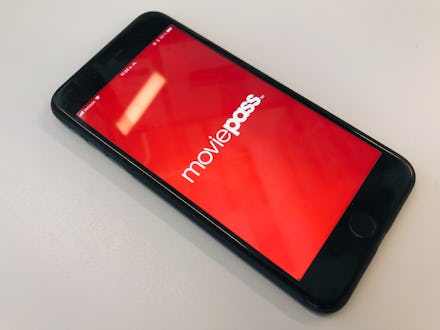MoviePass is super cheap — here’s the privacy you trade for such a low price

MoviePass is a $9.95-per-month subscription service that lets you see up to one box office movie per day. The premise is a little baffling: If a single movie ticket costs anywhere from $10 to $15, how can MoviePass let you see one movie per day — for a whole month — for the cost of a single ticket?
You’re paying for your tickets with your personal data.
MoviePass costs you $10 per month and your A/S/L
MoviePass, essentially, lets you see unlimited movies for $10 each month, or less if you pay for the year in advance. The price has gone as low as $6.95 per month — affordable, considering the service used to cost $50 a month in 2016. The cost is low because the company is collecting information about you.
“We don’t sell users’ data. Instead movie studios pay us to give them a data set,” said Ted Farnsworth in an interview with Mic. Farnsworth is the CEO of Helios and Matheson, the company that’s a majority owner of MoviePass.
“By giving them a data set, we can tell them that, for example, out of 20,000 moviegoers, 10,000 were between the ages of 18 and 25.”
The data MoviePass shares with movie studios includes more than just your age, though. “We know every movie our users go to, what genre they’re looking at, at what time of day, where they live and even their income,” Farnsworth said. According to him, the movie theaters don’t give studios information on who’s seeing their films. MoviePass fills that gap. “We can go to Fox or Warner Bros. and say, ‘We bought this many tickets, here’s the breakdown of everyone who went,’” Farnsworth said.
MoviePass isn’t just giving out your demographic information; it’s also tracking you physically.
Is MoviePass collecting your location data?
At a recent keynote speech, the CEO of MoviePass Mitch Lowe gave a more detailed look at just how much information the app has, specifically when it comes to location, according to Media Play News. During a presentation called “Data is the New Oil: How Will MoviePass Monetize It?” Lowe was candid about how much of your location data the app actually consumes, saying the company knows all about its users. “We watch how you drive from home to the movies,” said Mitch Lowe. “We watch where you go afterwards.” Lowe claimed that MoviePass’s long-term goal is to craft a full-on night out. In addition to helping you see a movie, the company wants to suggest where you should eat food. MoviePass could get a small cut from restaurants for directing users their way.
Late on March 12, Lowe addressed his comments, claiming he was simply joking around. “MoviePass does not track and has never tracked or collected data on the location of our members at any point when the app is not active,” Lowe clarified in the email to employees and customers. The message states that location is only used for two purposes: searching for a theater and checking into a theater.
A spokesperson for the company also issued a statement to Mic in response to Lowe’s keynote comments. “We will not be selling the data that we gather. Rather, we will use it to better inform how to market potential customer benefits including discounts on transportation, coupons for nearby restaurants and other similar opportunities.”
But that isn’t the case just yet. In the meantime there is a way to prevent MoviePass from overly tracking you.
How to limit location tracking in MoviePass
In their message to consumers, MoviePass announced the removal of the “always” location track option in the app’s settings. Though if you’re extra-wary, you can limit MoviePass’s tracking to the bare minimum.
The service requires you to be within 100 yards of the movie theater you want to visit before you can buy a ticket, which means that location tracking is an integral part of using the service. If you try to use the app without allowing it to see where you are, this dialog box will get in your way and prevent you from using the app.
The only workaround is an annoying one: When you’re not using the app, take away its locations permissions. You can make this change in your phone’s Settings. Tap Privacy > Location services > MoviePass and then choose “never.” Switch it back on when its time to get your movie ticket.
Unfortunately, your location needs to be switched on to even browse available theaters or see movie options from within the app. Though for some, an occasional trip to the Settings app to ensure MoviePass isn’t following them home may be a worthwhile trade-off.
March 13, 2018, 11:00 a.m.: This story has been updated.